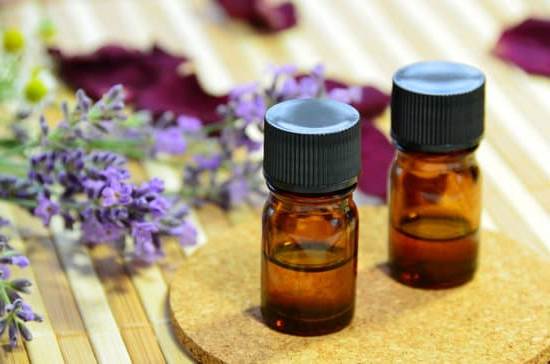Aromatherapy has long been cherished for its ability to promote relaxation and enhance overall well-being. One popular way to incorporate aromatherapy into your routine is by using essential oils in a bath. But the question remains, is it safe to use aromatherapy oils in bath?
Essential oils are highly concentrated plant extracts that possess unique therapeutic properties. When added to bath water, these oils can have a range of benefits, from alleviating stress and anxiety to soothing muscle tension and improving skin health.
However, before indulging in an aromatherapy soak, it is essential to understand the different types of aromatherapy oils available and their specific properties. Additionally, safety precautions such as dilution ratios, skin sensitivity considerations, and allergy testing should be taken into account to ensure a safe and effective experience with aromatherapy oils in the bath.
Understanding the Different Types of Aromatherapy Oils
Aromatherapy oils, also known as essential oils, are concentrated plant extracts that are used for their therapeutic properties in aromatherapy. These oils are derived from various parts of plants such as flowers, leaves, bark, and roots, and they are known for their distinct fragrances. Each type of essential oil has its unique properties and benefits when it comes to promoting relaxation, easing stress, improving mood, and even providing relief from certain ailments.
Some common types of aromatherapy oils include lavender oil, which is well-known for its calming and soothing effects, making it ideal for promoting relaxation before bedtime. Eucalyptus oil is another popular choice due to its invigorating aroma that can help clear sinuses and improve respiratory function. Tea tree oil is renowned for its antibacterial properties and is often used in skincare routines to combat acne and other skin issues.
When considering the use of aromatherapy oils in a bath, it is essential to choose the right type of oil based on your desired outcome. Whether you are looking to unwind after a long day or alleviate muscle tension, selecting the appropriate essential oil can enhance your overall bath experience. It’s crucial to research each oil’s properties and potential benefits before incorporating them into your bath routine.
| Type of Aromatherapy Oil | Main Properties |
|---|---|
| Lavender Oil | Calming and soothing effects |
| Eucalyptus Oil | Invigorating aroma; improves respiratory function |
| Tea Tree Oil | Antibacterial properties; beneficial for skincare |
Safety Precautions to Consider
Aromatherapy is a popular practice that involves the use of essential oils to promote relaxation, reduce stress, and enhance overall well-being. When it comes to using aromatherapy oils in the bath, there are certain safety precautions that should be taken into consideration. One common question that arises is: is it safe to use aromatherapy oils in bath? The answer lies in understanding the proper ways to dilute essential oils, considering skin sensitivities, and being aware of potential allergies.
Essential oils are highly concentrated plant extracts that can provide powerful therapeutic benefits when used correctly. However, due to their potency, it is crucial to dilute them properly before adding them to bath water. A general rule of thumb is to mix a few drops of essential oil with a carrier oil such as coconut or jojoba oil before incorporating it into a bath. This helps prevent skin irritation and ensures the oils are safely dispersed in the water.
Another important factor to consider when using aromatherapy oils in bath is skin sensitivity. Some individuals may have more sensitive skin than others and may react negatively to certain essential oils. It is recommended to perform a patch test on a small area of skin before using any new essential oil in a bath. This can help determine if any allergic reactions or irritations occur, allowing for adjustments or avoidance of specific oils if needed.
In addition to dilution and skin sensitivity, being aware of potential allergies is crucial when using aromatherapy oils in the bath. Certain essential oils can trigger allergic reactions in some individuals, even if they have been diluted properly.
Common allergens include tree nuts (such as almond oil), citrus fruits (like lemon or orange oil), and floral scents (such as lavender or chamomile). If you have known allergies to specific ingredients, it is best to avoid using corresponding essential oils in your baths entirely.
| Important Safety Precautions | Importance |
|---|---|
| Dilution of Essential Oils | Prevents skin irritation and ensures proper dispersion |
| Skin Sensitivity | Performing patch tests can help avoid adverse reactions |
| Allergies Awareness | Avoiding known allergens can prevent serious allergic reactions |
Benefits of Using Aromatherapy Oils in Bath
Aromatherapy oils have been used for centuries for their therapeutic benefits and ability to promote relaxation and overall well-being. When added to bath water, these essential oils can enhance the bathing experience, creating a spa-like atmosphere in the comfort of your own home. The use of aromatherapy oils in bath is a popular practice that offers a range of benefits, both physically and mentally.
Physical Benefits
One of the primary physical benefits of using aromatherapy oils in bath is their ability to moisturize and nourish the skin. Essential oils like lavender, chamomile, and rosehip have natural hydrating properties that can leave your skin feeling soft and supple after a bath. Additionally, certain essential oils have anti-inflammatory properties that can help soothe sore muscles and joints, making them ideal for post-workout relaxation.
Mental Health Benefits
In addition to the physical benefits, aromatherapy oils in bath can also provide mental health benefits. The calming scents of essential oils like bergamot, ylang-ylang, and frankincense can help reduce stress and anxiety levels, promoting a sense of calm and relaxation. These soothing scents can also improve mood and sense of well-being, making bath time a therapeutic ritual for self-care.
Aromatherapy Blends
To enhance the therapeutic benefits of using aromatherapy oils in bath, consider creating custom blends based on your needs. For relaxation, try blending lavender and chamomile; for an energy boost, mix peppermint with citrus oils like lemon or orange. Experiment with different combinations to find what works best for you personally.
Overall, incorporating aromatherapy oils into your bath routine can elevate your bathing experience while providing numerous physical and mental health benefits. Just remember to always dilute essential oils properly before adding them to bath water to ensure safety and avoid skin irritation.
How to Properly Incorporate Aromatherapy Oils in Bath
Aromatherapy oils can be a luxurious addition to your bath routine, enhancing relaxation and promoting overall well-being. However, it is crucial to know how to properly incorporate these oils into your bath water to ensure safety and maximize their benefits. By following some simple step-by-step instructions, you can enjoy the therapeutic effects of aromatherapy oils without any potential risks or side effects.
Choosing the Right Essential Oil
Before adding any aromatherapy oil to your bath water, it is essential to choose the right one based on your needs and preferences. Different essential oils have unique properties and benefits, so pick one that aligns with your desired outcome. Whether you’re looking for relaxation, stress relief, or an energy boost, there’s an essential oil out there for you. Some popular choices include lavender for relaxation, eucalyptus for respiratory support, and peppermint for invigoration.
Dilution and Mixing
Once you’ve selected the essential oil you want to use, the next step is dilution. Essential oils are highly concentrated and should never be applied directly to the skin undiluted as they can cause irritation or sensitivity reactions.
To safely incorporate aromatherapy oils into your bath water, mix a few drops of the essential oil with a carrier oil such as coconut or jojoba oil before adding it to the bath. This will help disperse the oil evenly in the water and prevent any skin irritation.
Adding Oils to Bath Water
After diluting the essential oil with a carrier oil, it’s time to add them to your bath water. Fill your bathtub with warm water at a comfortable temperature. Then, add the diluted mixture of essential oil and carrier oil directly into the running water stream to ensure proper dispersion.
Swirl the water around gently with your hand to further distribute the oils throughout the bath. Take care not to add too much oil, as overpowering scents can be overwhelming and potentially irritate sensitive skin. Enjoy soaking in this fragrant oasis for a soothing and relaxing experience.
Potential Risks and Side Effects
Aromatherapy oils have gained popularity for their therapeutic benefits in relaxation, stress relief, and overall well-being. However, it is crucial to understand the potential risks and side effects associated with improper use of these oils, especially when incorporating them into bath water. While aromatherapy can be a safe practice when done correctly, it is essential to be aware of certain precautions to avoid any adverse reactions.
To ensure the safe use of aromatherapy oils in the bath, consider the following guidelines:
- Dilution: Essential oils are highly concentrated and should always be diluted before adding them to bath water. Direct contact with undiluted oils can cause skin irritation or allergic reactions.
- Skin Sensitivity: Some individuals may have sensitive skin that is more prone to irritation from certain essential oils. Perform a patch test on a small area of skin before using the oil in a bath to check for any adverse reactions.
- Allergies: If you have known allergies to specific plants or botanicals, it is important to avoid essential oils derived from those sources. Be cautious when trying out new oils and discontinue use if any signs of an allergic reaction occur.
While aromatherapy can offer numerous benefits when used safely, improper usage can lead to certain risks and side effects. It is crucial to follow recommended guidelines for dilution, skin sensitivity testing, and allergy considerations before incorporating aromatherapy oils into your bath routine. Prioritizing safety measures ensures that you can enjoy the relaxing benefits of aromatherapy without any unwanted consequences.
Alternative Uses for Aromatherapy Oils
Aromatherapy oils are versatile and can be used in various ways beyond simply adding them to bath water. Here are some alternative methods of using essential oils for aromatherapy:
1. Diffusers: One popular method of enjoying the benefits of aromatherapy oils is by using a diffuser. Diffusers disperse essential oil molecules into the air, allowing you to inhale them and experience their therapeutic effects. Whether you choose a nebulizing diffuser, ultrasonic diffuser, or simple reed diffuser, this method provides a convenient way to enjoy the scents and benefits of essential oils throughout your home or workspace.
2. Topical Application: Another common way to use aromatherapy oils is through topical application. By diluting essential oils with a carrier oil such as coconut oil or almond oil, you can apply them directly to your skin for various benefits. From massage oils to homemade skincare products, incorporating essential oils into your daily self-care routine can promote relaxation, relieve tension, and improve overall well-being.
3. Inhalation: Inhaling essential oils directly from the bottle or using a steam inhalation method can also provide therapeutic benefits. Adding a few drops of essential oil to a bowl of hot water and inhaling the steam can help clear sinuses, alleviate congestion, and promote respiratory health. Alternatively, you can simply take a deep breath from the bottle itself or add a few drops to a cotton ball for on-the-go aromatherapy.
By exploring these alternative methods of using aromatherapy oils, you can incorporate their healing properties into different aspects of your daily life. Whether it’s through diffusers, topical application, or inhalation techniques, there are plenty of safe and effective ways to enjoy the benefits of essential oils beyond adding them to bath water.
Conclusion
In conclusion, incorporating aromatherapy oils into your bath routine can be a wonderful way to enhance relaxation and promote overall well-being. However, it is crucial to prioritize safety when using essential oils in the bath. Dilution is key to prevent skin irritation or sensitivities, especially for those with allergies or sensitive skin. Understanding the unique properties of different types of essential oils is also important in order to reap the full benefits without any adverse reactions.
When adding aromatherapy oils to your bath water, it is essential to follow proper guidelines and instructions. Gradually introduce the oils into the water and ensure they are well-diluted to avoid any potential risks or side effects. Taking the time to research and educate yourself on each oil’s properties and effects can further enhance your aromatherapy experience while keeping safety at the forefront.
Overall, while aromatherapy oils can provide numerous therapeutic benefits when used correctly in baths, it is always best practice to approach their use with caution and mindfulness. By following safety precautions, understanding the various types of essential oils available, and incorporating them properly into your bathing routine, you can enjoy a luxurious and rejuvenating experience that promotes relaxation and enhances your overall well-being. Remember, safety first when indulging in the wonders of aromatherapy oils in bath time rituals.
Frequently Asked Questions
Can I Put Aromatherapy Oil in My Bath?
Yes, you can put aromatherapy oil in your bath to enhance relaxation and promote overall well-being. However, it is important to ensure that the oil is diluted properly to avoid skin irritation or sensitivities.
What Essential Oils Should Not Be Used in the Bath?
There are certain essential oils that should not be used in the bath due to their potential to cause skin irritation or sensitivity. Oils like cinnamon, oregano, and thyme are considered too harsh for direct application on the skin and should be avoided in bath water.
Can You Put Aromatherapy Oils in a Hot Tub?
It is generally not recommended to put aromatherapy oils directly in a hot tub, as this may affect the filtration system and potentially cause damage. Instead, consider using specially formulated aromatherapy products designed for use in hot tubs to ensure safety and effectiveness.

Are you looking for a natural way to improve your health and wellbeing?
If so, aromatherapy may be the answer for you.





